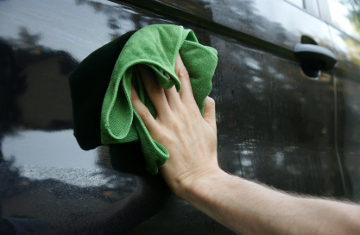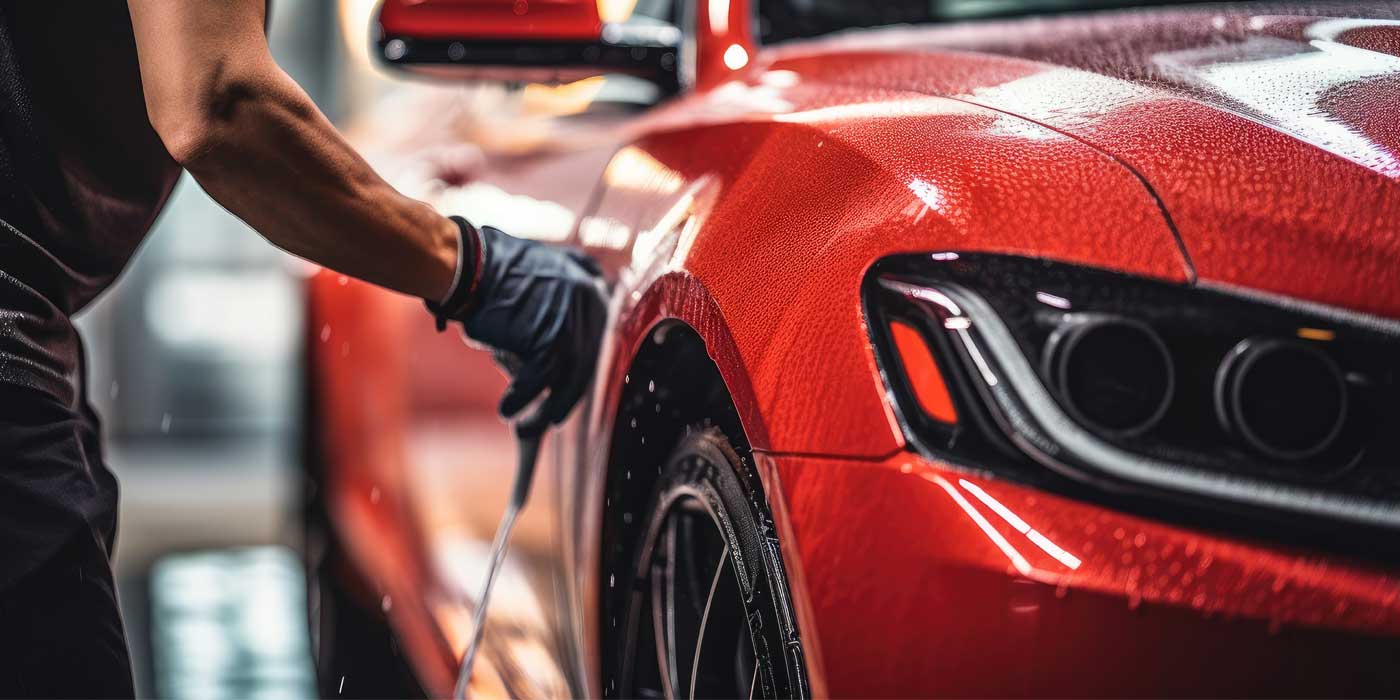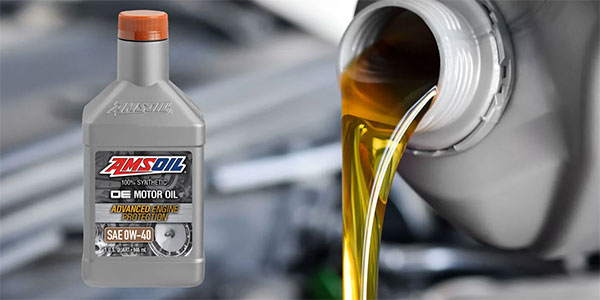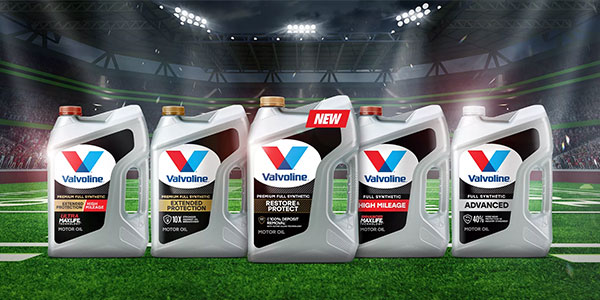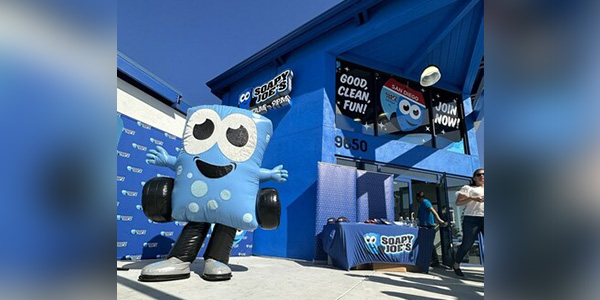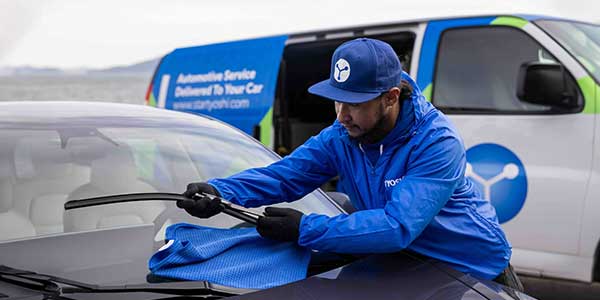For a customer who is looking to get his or her personal vehicle serviced, or for a business representative looking to subcontract out reconditioning work, there are a few variables that should be taken into consideration before a final decision is made on a detailing service provider. The main question is: Who gives a customer the better choice? Is it a commercial detailing operation or residential detailing, commonly known as mobile or private detailing?
There are also differences between the two most commonly used methods of acquiring a detailer that I feel are not being brought up in many detailing conversations. When a new customer is looking to get their car detailed, they normally do two things. Some call the dealership where they bought the car and take it in to get serviced. Others go online and type “car detailing.” Many detailers that come up in online searches are mobile detailers.
Here, we discuss the differences between the two types of detailing operations, and we break down their advantages and disadvantages by studying common customer convenience and service factors.
Convenience
Very few commercial companies offer detailing directly to private customers because they are contracted to a dealership or location where the detailing services are exclusive to the company. If a customer wants to get a car detailed at any of these locations, they must call the business, schedule with them, take the car there and wait for the job to be completed.
If the location is a car dealership or similar business, it will usually have a customer lounge with TV, free Wi-Fi, snacks, coffee, soda, etc. Sometimes they even give customers a loaner vehicle in case they want to run some errands while having a vehicle serviced.
Residential or mobile detailing provides the benefit of having detailers come to a house or workplace. Customers don’t have to do much other than give the workers a few hours to work their magic on a vehicle. Soon, the customer can have a “like new” vehicle while waiting in the comfort of his or her home or office.
Pricing
I want to make this very clear for my readers; customers often get exactly what they pay for. Mobile detailing companies have a price that is based on labor, chemicals and supplies. It’s often much cheaper than going to a commercial location, but there is a good reason for it.
Commercial detailing prices will be of a fair market value, but more expensive, because the price includes certain overhead charges associated with a stationary location. Most of my experience is in commercial detailing at car dealerships, car rental agencies or collision centers. A large percentage of these locations use a subcontractor or vendor. The vendor bills them for their detailing services and then the locations mark up the bills on their customers.
Here, there are a few advantages with going to a commercial location and paying more. At commercial locations, chemicals and supplies are usually distributed by companies that specialize in this market. These companies provide training to novice and advanced detailers to properly ensure that a car is not damaged by the misuse of a chemical.
This is something most residential or mobile detailers generally cannot compete with. Some residential operations buy the cheapest option and almost never get training on how to use the product.
Dependability and accessibility
If it’s raining or snowing, it’s hard for a mobile detailer to complete jobs because they usually work outside in driveways or parking lots. If it’s too hot out, most waxes don’t work well in the heat of the sun. I’m sure that some mobile detailers have tents they can set up to shade themselves from the elements, but it’s still nothing like working in an enclosed facility.
Finally, one complaint I’ve heard over and over again involves dependability. Sometimes mobile detailers reschedule appointments with little notice or cancel one job to go after a higher-paying job. Even worse, some operations may not even bother to call or show up at all. Since they work on their own schedules and time, it can be a game of cat and mouse if a customer picks the wrong mobile detailer.
Most commercial locations have state-of-the-art facilities where a car can be under optimal lighting and surrounded by the most advanced technologies available in the present detailing market. They are not affected by the weather as much as a mobile detailer and are generally open the same hours as the commercial location. This means they are always there, and you can always schedule a detail without the fear of having it canceled or rescheduled.
Quality
Residential detailing’s level of quality mainly depends on the experience and training the workers have. It is the same with commercial detailing, but the good thing about going to a commercial location is whether it is subcontracted or in-house, all cars should be inspected by a detail manager or an assistant manager prior to a customer picking it up and going home. The detail company and the dealership want to exceed the customer’s expectations. They take no chance on an unhappy customer and/or a bad survey. Plus, they want repeat business and referrals to family, friends, coworkers and neighbors.
Oftentimes, the only person checking the residential detail is the customer. If customers don’t know what to check in a finished detail, they may not be getting the best job. It’s always a good idea for customers to have someone who knows a little about cars help inspect a finished detail. Customers should feel free to share any specific issues with the detailer, whether residential or commercial, to maximize results, expectations and satisfaction.
Other challenges
There are some disadvantages associated with commercial detailing that can prevent some commercial locations from being the best choice. Remember the subcontractors commercial locations use? Sometimes, when vendors bid on commercial locations or dealerships, the location management or ownership may go for the lowest bid instead of a more reasonable offer. These commercial locations may choose the lowest bid because they feel they can maximize profits and get a good quality job at the same time, but this rarely happens.
In this case, the commercial location loses quality, customers and profits because the detailing vendor can’t afford to pay for a quality employee with detailing experience. They also can’t afford to pay for quality chemical products and supplies. They are usually understaffed and cannot do all the work provided to them.
I’ve even been to locations where customer detailing pays less than reconditioning work. Therefore, detailers don’t want to touch the lesser-paying work and/or they breeze through the detail with little concern for quality, focusing instead on quantity. In this instance, inexperienced or new employees may end up detailing cars.
Avoiding issues
In my years of owning and operating detail operations at many commercial locations, I’ve committed myself to providing exceptional and quality workmanship through innovation. Based on this, I encourage customers to come back to the detail department and watch the team work on their vehicles. I build relationships with customers and let them know they can always count on us to get the job done.
For detailing customers, I encourage anyone who wants to get their car detailed to do their homework and check ratings, comments and references. I would recommend they take a walk back into the detail area of a commercial shop and see the operation firsthand.
Gerardo De Jesus is owner and operator of GDJ Detail Company. His company was established in 2008 and is located in Port Richey, Fla. De Jesus can be contacted at [email protected].

